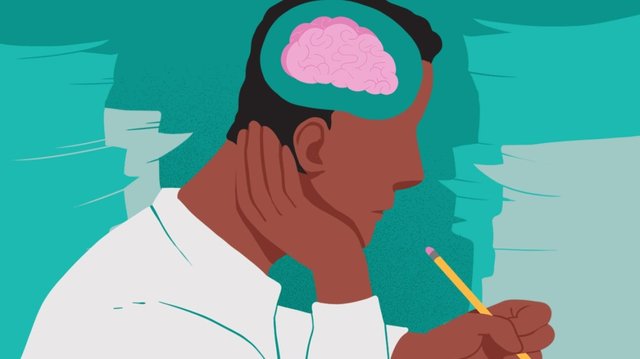Stress is associated with a feeling of emotional and physical tension that may come from any event or thought. This will result in frustration, anger, and nervousness. Eventually, stress symptoms can affect our body, feelings, behavior and even worse, it contributes to many health problems. Based on the article “The Scary Things That Happen to Your Brain When You’re Stressed – And How to Calm Down” by Kimberly Hiss stated the effects of stress and solutions to relieve it.
Stress mainly affects the brain. Chronic stress will result in the excess of myelin causing a change in the balance of communication, timing within the brain’s circuitry and altering the connection of neurons. This alteration could lead to mental disorders such as anxiety, depression and post-traumatic stress disorder. A person who experiences stress would likely have a higher risk of depression because it prevents the production of new neurons in the brain.
Other than that, anxiety-inducing events; divorce, loss of home and loss of a loved one will reduce the grey matter prefrontal cortex, which handles self – control and emotion. When stressful life events accumulate, it will create a challenge for individuals who suffer from it to deal with future stress. A person aged between 45 – 84 who experiences stress has a greater stroke risk. The main problems that trigger this chronic illness are health, money, and relationships.
The good news is the effects of stress are reversible. As a stressor is removed or reduced, the neural stem cells will gain their capacity to form neurons at a normal rate. Other ways to calm down are doing exercises, meditate and sleep. These actions will probably reduce the level of stress and give positive effects to the brain.

https://www.healthline.com/health-news/how-stress-can-shrink-your-brain
The message that the author is trying to convey is clear and convincing for the readers as the contents are supported with trusted sources.
Another article that supports the idea above also stated how a bit of stress is a normal part of our daily lives, however, when the stress is severe or chronic it needs to be dealt with immediately. In the article ‘How chronic stress changes the brain – and what you can do to reverse the damage’ by Barbara Jacquelyn Sahakian, Christelle Langley, and Muzaffer Kaser, they discussed about the effect of repeated stress which can cause a huge impact on our brain and how to overcome it effectively.
Both articles agree that chronic stress can lead to depression, which is a leading cause of disability worldwide. There are many reasons for this, and they can be linked to changes in the brain. The reduced hippocampus that persistent exposure to stress hormones and ongoing inflammation can cause is more commonly seen in depressed patients than in healthy people. Besides, chronic inflammation can lead to a range of health problems as mentioned in the first article. The brain is normally protected from circulating molecules by a blood-brain barrier. But under repeated stress, this barrier becomes leaky and circulating inflammatory proteins can get into the brain. In addition to depression and anxiety which is not stated in the former article, chronic stress and its impact at work can lead to burnout symptoms, which are also linked to increased frequency of cognitive failures in daily life. As individuals are required to take on the increased workload at work or school, it may lead to reduced feelings of achievement and increased susceptibility to anxiety, creating a vicious cycle.
The articles have quite similar ways to tackle it which proves the effectiveness. They both agree that exercise and meditation have established benefits against chronic stress. Exercise tackles inflammation by leading to an anti-inflammatory response while mindfulness allows us to take notice and be curious about the world around us and spend time at the moment. The second article also provides another way to beat stress which involves connecting with people around you, such as family, friends, and neighbors. When you are under stress, relaxing and interacting with friends and family will distract you and help reduce the feelings of stress.
In my humble opinion, stress is not the only factor that could cause a brain to shrink. There is a lot of media coverage warning about stress causing the brain to shrink due to the cortisol level, popularly known as stress hormones. However, cortisol is only the tip of the iceberg and there is still a lot going on underneath said Bruce McEwen, a neuroscientist at The Rockefeller University in New York.
Cortisol is a hormone that works in certain parts of the brain to control one’s mood, motivation, and fear and plays an important role in a number of things in our body like keeping chronic inflammation down. Research led by Shesadri and Justin Echouffo - Tcheugui required a group of participants divided into three different cortisol levels at the low, medium, and high. The result shows the group with a higher level of cortisol are inclined to have deficient memories and attention as well as having an injury on their white matter.
Since cortisol is involved, stress is not necessarily to blame, McEwen advised. There is no doubt that stressful events will trigger the cortisol, however other factors can set it off as well, like tamping down inflammation. Thus, chronic inflammation can also cause cortisol to rise. Besides, McEwen mentioned that cortisol is likely to alter the brain’s volume. If there is any inflammation, it could also play a part in the injury on the white matter. McEwen hoped the team would continue to dig into why some people had higher cortisol levels than others, and what else might be affecting their brains to shrink.